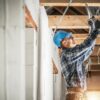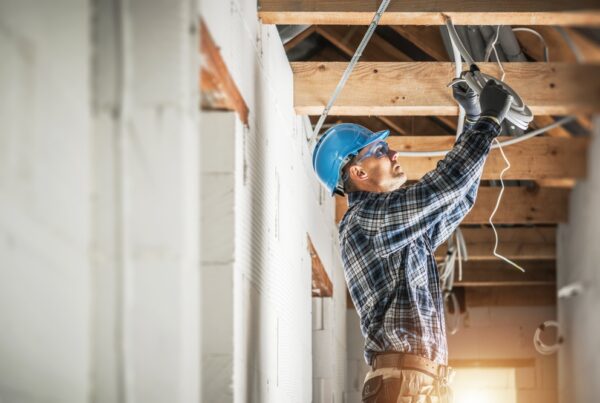In a recent Strata Community Association NSW webinar, industry experts Banjo Stanton (Bannermans Lawyers), Joshua Jasnos (Strata Plus) and Tony Irvine (SCA NSW President) came together to answer key FAQs about building defects.

1. Who is Responsible for Common Property Defects?
In NSW, under the Strata Schemes Management Act 2015, the owners corporation (also known as the body corporate in other states) holds the primary responsibility for the maintenance and repair of common property. Specifically, Section 106 of the Act states:
(1) An owners corporation for a strata scheme must properly maintain and keep in a state of good and serviceable repair the common property and any personal property vested in the owners corporation.
This means that any defects or issues affecting common property areas—such as hallways, gardens, roofs and shared facilities—fall under the responsibility of the owners corporation.
Potential liable parties for common property defects
While the owners corporation is responsible for managing and repairing common property, they may seek compensation or repairs from various third parties, including:
A. Builders and developers
If defects are related to construction or design faults, builders and developers may be liable. Under the Home Building Act 1989, builders and developers must adhere to statutory warranties that cover structural defects and certain non-structural issues.
B. Subcontractors
If defects are due to the work of subcontractors (e.g., electricians, plumbers), they might also be held accountable under the statutory warranties.
Home Building Statutory Warranties provide protections and avenues for claiming repairs or compensation for certain types of defects. They generally cover a period of 6 years for major defects and 2 years for all other defects from the date of completion.
2. When should you engage a building consultant?
You should engage a building consultant as early as possible when defects are suspected. If you suspect issues with the construction or condition of the common property, a building consultant can provide a detailed inspection and report on the nature and extent of the defects.
3. When should you engage a lawyer?
As a starting point, you should not engage a lawyer until you have solid evidence of building defects. Once defects have been identified, you should engage a lawyer to pursue legal action if the owners corporation has neglected their duty to repair and maintain common property.
4. What should you do from the onset?
A. As soon as defects are identified, you should document them. This includes taking photos, keeping records of any correspondence and noting the nature and extent of the defects.
B. Report defects to the owners corporation. They are responsible for repairing and maintaining common property.
C. If necessary, hire a building consultant to assess the defects and provide a detailed report. This report will be important for examining the nature of the defects and deciding whether to pursue legal action.Top of Form
Read original article here.









